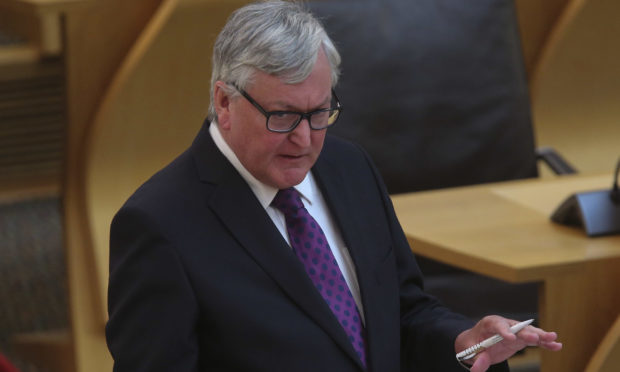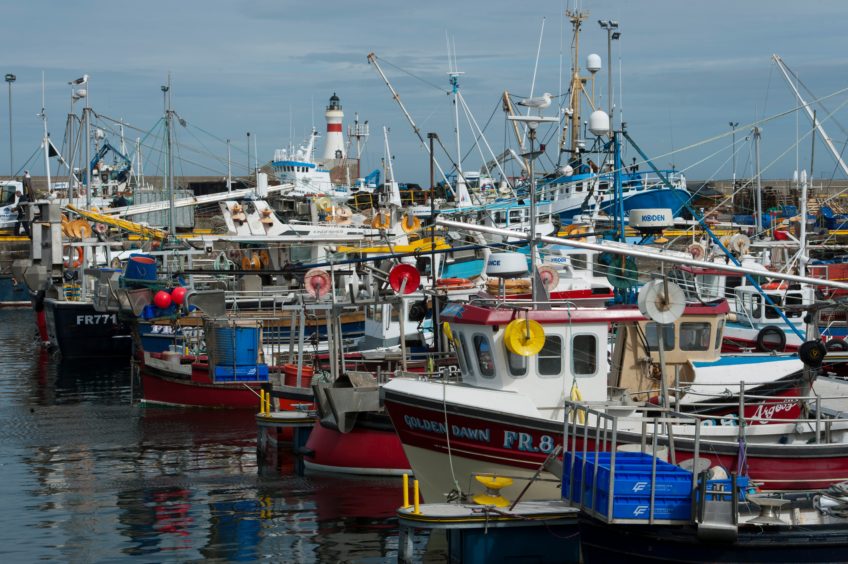Denying the Scottish Government full involvement in international fishing negotiations could lead to a “potential detriment to Scotland”, the country’s rural economy secretary has warned.
Fergus Ewing said the UK Government has not agreed to repeated requests from the Scottish Government to participate in international negotiations on fishing, as Britain nears the end of the transition period for leaving the European Union.
Addressing the rural economy and connectivity committee, Mr Ewing said he had raised the issue with Cabinet Office Minister Michael Gove during a visit to Buckie this month.
He added: “We have requested that we be fully involved, our officials have been to some extent.
“The risk is that unless they are to the fuller extent, that we would normally enjoy in the annual round of negotiations in Brussels and also the vital negotiations with Norway, Faroes and Iceland, then there is the risk that decisions are taken without Scotland’s position being fully set out, expanded and advocated, leading to a potential detriment to Scotland.”
However, Mr Ewing said the “co-operative working” between ministers in both governments on the Fisheries Bill, demonstrates what can be achieved when the UK Government “seek to work with us and not impose their plans upon us”.
He added: “The bill would be the poorer without our input. This input of Scottish expertise and knowledge has improved the bill from its original draft.
“We are as prepared as we can be for the end of the transition period.
“I’m confident this bill gives Scottish ministers and the Scottish parliament the necessary powers and tools to do that in a way that respects devolution.”
The SNP politician said that in recommending the legislative consent memorandum of the bill, the Scottish Government was “not doing anything which passes powers to the UK Government”.
He added: “Nothing would be done without our consent. Any decision to allow the UK Government to exercise decisions in relation to matters would only be taken on the basis that we consent to these functions being carried out in this way.”
The remarks mark a change in attitude from early this year, when the new legislation was branded “disappointing” by the rural economy secretary.
Speaking in January, Mr Ewing said proposals in the Bill would allow UK Government ministers to set quotas for fishing in Scottish waters.
But in yesterday’s committee meeting, he said that despite a co-operative relationship on the bill, he did not “want to get carried away as if this is some kind of glee club, cos it ain’t”.
He added: “At the meeting with Mr Gove in Buckie there was real concern about loss of market coming from processors, and lack of clarity about the European Maritime and Fisheries Fund (EMFF) and the continued availability of labour post-Brexit.”
The Fisheries Bill, which has passed through the House of Lords and moved into the Commons, will end the current automatic rights for EU vessels to fish in British waters.
It contains a legal requirement for all fishing to be carried out at “sustainable levels”, and sets out guidelines for the UK Government and devolved administrations to “co-ordinate fisheries management where appropriate”.
Writing for us, UK Government Fisheries Ministers claimed the UK Government “fully understands” the importance of the fishing industry to Scotland, arguing that the Bill offers a “once-in-a-generation opportunity to take back control of our natural resources”.
A UK Government spokesman said: “We have wholeheartedly committed to maintaining funding for our fishing industry across the UK, with the Fisheries Bill creating new powers to build a sustainable and profitable sector with a funding scheme for Scotland.
“This government has already made an extra £16.5 million available to help the Scottish seafood sector capitalise on leaving the EU and we will continue to work closely with the industry as we become an independent coastal state.”


